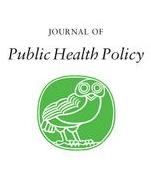The health care industry is responsible for 10 percent of the United States’ carbon emissions, according to Yale researchers.
One part of that is medical waste — a lot of the waste produced by hospitals has to be incinerated. That emits more carbon dioxide per megawatt hour than coal power plants, said Toya Lopez of Health Professionals for a Healthy Climate.
In the past few years, many psychologists report seeing patients with physical and emotional symptoms related to climate change. Now add coronavirus, and it’s easy for some of us to feel overwhelmed, even hopeless. But mental health professionals say hope can be an effective antidote to climate and COVID-19 stress. Hennepin Healthcare clinical psychologist Kristi White, wrote about this in the nonprofit climate news site Ensia.
Hundreds of doctors, nurses, and other health professionals are on the front lines in hospitals across Minnesota treating COVID-19 patients, who are fighting for breath and life. At the same time, the federal government is in the process of pulling back life and breath-saving standards for vehicle emissions.
As a clinical health psychologist, I’m growing increasingly concerned about the physical and mental health of our younger generations. Just as the generation before us practiced hiding beneath their desks under the threat of thermonuclear war, we are preparing for a future that is charred and blackened. The big difference is, the threat we face from climate change is actually happening, and there’s no drill to give us a false sense of protection from it.
The Enbridge Line 3 expansion is a threat to our health. That is why Health Professionals for a Healthy Climate recognizes that the only pathway forward is for the Public Utilities Commission to reject the pipeline expansion and close the existing pipeline.
In mid-January, more than 20 health professionals presented testimony to Gov Tim Walz’s office on the health risks of Line 3. As a first-year medical student at the University of Minnesota Medical School and as a tribal member of the Ohkay Owingeh and San Felipe Pueblo, I spoke about the impacts Line 3 could have on manoomin (wild rice) and its effects on the tribal communities whose culture and lives are deeply rooted.
Health care professionals and organizations have attempted to advance sound climate policies through educational efforts including conferences, symposia, webinars, and policy and scientific statements. Unfortunately, these approaches have failed to make a substantial impression on the public or elected officials.
Braving the cold Wednesday morning, more than 20 health professionals, students and climate advocates around Minnesota held a teach-in at the Minnesota State Capitol, educating senior staffers about the potential risks of a proposed replacement oil pipeline.
Unfortunately, it’s no longer a matter of what we are willing to pay. It is the matter of paying whatever it takes to save ourselves.
Hold the kudos for a legislative session well done, because the Senate refused to even allow hearings on how Minnesota needs to address the climate and health crisis that is bearing down on us.








